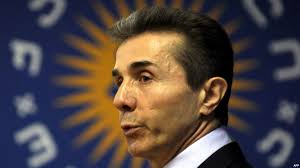
Georgian Prime Minister Announces His Intention of Pre-Term Resignation
Publication: Eurasia Daily Monitor Volume: 10 Issue: 158
By:

On September 2, Georgian Prime Minister Bidzina Ivanishvili released an eight-page “open letter to the public” in which he outlines the reasons for why he intends to leave the position of head of government before the expiration of his term. Ivanishvili said he needs to leave to avoid becoming another Georgian “political messiah” and, in this way, to help Georgians become more self-reliant. Moreover, he declares that he will now direct all of his efforts toward developing a strong civil society in order to contribute to the formation of a European-type, democratic, citizen-oriented state in Georgia. He states that he will leave sometime after the October presidential election, when he is assured that the election went successfully, all state institutions work in an orderly manner, and the country’s development course is stable. He further says that if it becomes necessary, he will return to active politics. Although, he expresses doubts that such a need may arise again. The exact date of his resignation is still to be announced. But he promises to nominate a new prime minister who will be up to the challenge (Civil Georgia, September 2).
Ivanishvili’s departure from politics was largely anticipated. From the very beginning when he declared his intention to enter politics in fall 2011, Ivanishvili stated that he would stay only for two to three years (www.pirweli.com.ge, www.interpressnews.ge, October 7, 2011). After he became prime minister, he again declared that he would resign sometime soon (1 TV, June 23). Furthermore, in August 2013, he announced that he was selling his TV station Channel 9 and discontinued its broadcasting (www.netgazeti.ge, August 19), thus hinting at his intention to leave public life altogether.
The prime minister’s stated reasons for his upcoming resignation raises a number of questions. First, why can Ivanishvili not use his current post of prime minister to develop Georgia’s civil society? Second, if he cannot use the most powerful office in the country toward this end, why or how will he be more effective in the capacity of a private citizen, even with his huge financial resources? Moreover, it is also uncertain, how and why completing his full four-year term would make him a political messiah?
More than likely, Ivanishvili simply is fleeing politics. He might be just escaping responsibility for the unrealistic and subsequently unfulfilled election promises his coalition has made. A shrewd man, he clearly has seen that the drastic fall in his popularity is inevitable as an increasing number of Georgians are becoming deeply disappointed with his government largely due to the stagnant living conditions in the country. Therefore, he has decided to leave while still popular, his favorability rating standing around 70 percent (Civil Georgia, July 15). By this departure, he might be saving himself as a viable political figure for the future. On the one hand, he unquestionably deserves praise for voluntarily, before the expiration of his term, leaving the most powerful office in the country, the first Georgian ruler to do so in Georgia’s modern history. By this step, he clearly is setting a highly positive moral example not only for Georgia, but for the rest of the post-Soviet space, where rulers rarely if ever leave office willingly, instead using all means at their disposal to stay in power.
However, Ivanishvili’s resignation may plunge Georgia into severe political instability for several reasons. First, his exit most probably will cause the rapid disintegration of the ruling Georgian Dream (GD) coalition, as he is the key leader who brought these disparate political parties together (see EDM, December 19, 2011). The disintegration of the coalition will likely destabilize the parliament, the government and the entire Georgian political system, as the former coalition partners clash for the redistribution of political spoils.
Second, after Ivanishvili’s departure, there is arguably no clear and strong political leader within or outside of the ruling GD coalition who can confidently take over the post of the prime minister and address the profound socio-economic and political challenges Georgia faces. This creates a political vacuum that may set in motion an intensive power struggle among the various contenders, inevitably causing a prolonged crisis in government.
Third, Ivanishvili’s departure may re-motivate outgoing President Mikheil Saakashvili, still energetic and in his mid-forties, to attempt a comeback to the political stage, this time in the capacity of the prime minister. The problem with this step is that Saakashvili and his ruling United National Movement (UNM) party is still deeply unpopular in Georgia. A poll by the National Democratic Institute (NDI) released in July 2013 revealed that the GD coalition enjoys a five-to-one lead in popularity over UNM (https://www.ndi.org/node/20487). Moreover, many thousands of Georgians, among them former inmates, recently released from jails under the general amnesty of the new government, and thousands of businessmen who suffered exploitative state practices against their businesses under Saakashvili’s rule, do not want to see Saakashvili retake power. Many of them fear political and legal retributions in case of Saakashvili’s return (Author’s interviews, April 15–September 4, 2013). Saakashvili’s possible attempt to come back to power may result in a ferocious backlash from these groups, thus plunging Georgia into chaos and violence.
Should any of the above scenarios come to pass, the political responsibility for the ensuing instability will certainly rest with Ivanishvili for his premature exist from the political stage. Therefore, Georgia might be entering a new period of uncertainty—something that a territorially dismembered, economically impoverished, and institutionally weak country certainly cannot afford.




